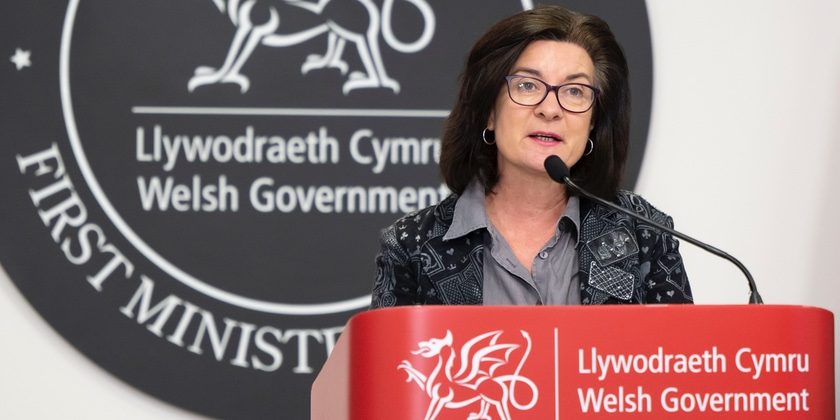NHS waiting lists drop for first time after eight consecutive rises

The number of patients waiting to start NHS treatment in Wales has dropped for the first time after rising for eight consecutive months.
New figures released today show that the number of open patient pathways fell from just under 764,500 to just over 758,800.
The number of patient pathways waiting less than 26 weeks decreased to 58.3 per cent in November.
Around 24,800 pathways were waiting more than two years. This is 64.8 per cent lower than the peak and continuing to fall month on month.
Open patient pathways is not the same as the number of patients waiting for treatment – with some people on more than one waiting list.
However as of November there were around 582,000 individual patients on treatment waiting lists in Wales.
Ambulance Response Times
In December, just over 37,700 emergency calls were made to the Welsh Ambulance Service
Of these, 14.3 per cent of all calls made were classed as immediately life-threatening. This is the second highest on record.
48.9 per cent of red calls received an emergency response within eight minutes – This was 0.6 percentage points lower than the previous month.

Picture: Welsh Government
This is below the Welsh Government target of 65 per cent of category red/immediately life-threatening calls – receiving a response within eight minutes.
In north Wales just under 50 per cent of red calls received a response within the target time.
Emergency departments
In December there were 84,200 attendances to emergency departments across Wales.
This was an average of 2,718 daily attendances to emergency departments – a decrease compared to the previous month.
The Welsh Government has a target of 95 per cent of new patients spending less than four hours in an emergency department until admission, transfer or discharge.

Picture: Welsh Government
According to today’s figures 66.7 per cent of patients in A&E spent less than four hours in the department. This was 2.8 percentage points lower than the previous month.
In Wrexham 4,801 patients attended the emergency department at the Wrexham Maelor Hospital.
Of those 2,656 patients – 55.3 per cent – spent less than four hours waiting.
3,557 people spent less than eight hours in the Wrexham Maelor emergency department and 4,042 spent less than 12 hours.
Cancer waiting times
In November 2023 less people with cancer started their first definitive treatment than the previous month.
The number of cancer patients who started their first definitive treatment dropped in November to 1,894.
This is the fourth highest figure on record.
The number of pathways closed following the patient being informed they did not have cancer decreased to 14,765, but still the second highest figure on record.
Performance also decreased against the 62 day target in November to 53.5 per cent, compared to 56.2 per cent the previous month.
The highest proportion of pathways starting their first definitive treatment within 62 days was in Betsi Cadwaladr (58.8 per cent) and the lowest was in Hywel Dda (40.5 per cent).

Picture: Welsh Government
Response
Glenn Page, Macmillan Policy Manager for Wales branded today’s cancer figures as falling “woefully short of where people with cancer desperately need it to be.”
He called on the Welsh Government to “act now to shore up cancer care, and to seek ways to transform services through delivery of the commitments made in the Wales Cancer Improvement Plan.”
Glenn Page said: “We are particularly concerned about the ongoing delays for patients with gynaecological cancers, including cervical and ovarian cancer, as this month’s recordsmshow the third worse performance ever.
“Far too many people with cancer are having to wait far too long for vital treatments to begin. This is a system wide failure that is leaving vulnerable cancer patients to face anxious delays which could see their condition get worse.
“While we know that NHS staff continue to work tirelessly to provide the best possible care for patients, chronic staff shortages, long-standing delays and the height of winter being almost upon us, all mean that the worst may still be to come.
Russell George MS, Welsh Conservative Shadow Health Minister said: “It is atrocious that two key services provided by our Welsh NHS, cancer and ambulance waits, are worsening yet again in Labour-run Wales.
“You have less than a 50/50 chance of an ambulance arriving within the target time in Labour-run Wales and barely a 50/50 chance of receiving cancer treatment on time.
“The Welsh Conservatives would enact a substantial workforce plan with a tuition fee refund for healthcare workers at its heart, in order to end Labour’s staffing crisis in our Welsh NHS.”

Health minister Eluned Morgan
However Eluned Morgan, Wales’ health minister, argued that the steps taken this winter are helping to stabilise or improve performance in the health service.
Ms Morgan said: “I am delighted that for the first time in a number of months the overall number of people on waiting lists has come down, but the challenging winter we have been through means that this may be difficult to sustain over the coming months.
“When compared to the same time last year we’ve seen improvements in ambulance response time performance and reduced ambulance patient handover delays, as well as a 20% fall in numbers of patients spending over 12 hours in an emergency department before admission or discharge.
“This is despite immense pressure. As an example, the NHS 111 Wales service answered more calls than ever, and the average number of daily red calls made in December was the second highest on record.
“Health boards have continued to make progress in the delivery of planned care services during November.
“The number of patients waiting over two years continues to fall, and November also saw a fall in the overall number of pathways on the waiting list. This is a change from the recent monthly increases.
“The numbers waiting for diagnostic procedures have also reduced in November.
“The number of people told they do not have cancer was the second highest figure on record.
“But there is much more to be done and we will continue to work with health boards to tackle the longest waits.”
Macmillan provides support to anyone with cancer and their loved ones. For advice, information or a chat, people can call for free on 0808 808 0000 or visit macmillan.org.uk.
Spotted something? Got a story? Email: [email protected]
Latest News
